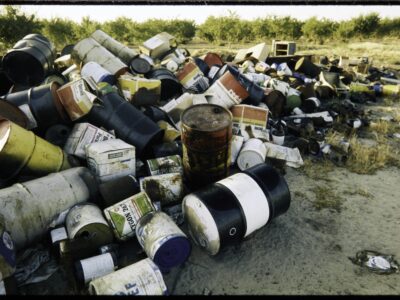A New/Old Jewish Environmental Ethic: Don’t Go About Like a Merchant

Even the most cursory look at Jewish ethics will reveal a vehement — at times almost obsessive — concern with preventing gossip. Even little kids grow up being warned against לשון הרע (“Lashon Hara”), literally the “evil tongue” — a horrific sin in traditional Jewish ethics. The great rabbi Yisrael Meir Kagan (1838-1933, and no relation as far as I know although it would be cool) wrote an entire book about it, the Chofetz Chaim, which is still studied today by Jews of all persuasions, and is usually referred to as the Chofetz Chaim despite all of his other works. What’s more, think of the name of that book: it literally means “desire for life,” as if life and the prevention of gossip were the same. Many rabbis have ruled that even embellishing a story only to entertain and even hurting no one is strictly forbidden.
Okay. But where does such an emphasis come from? And what does it have to do with the environment?
Patience, grasshopper. The injunction originally stems from Leviticus 19:16, which reads in Hebrew, לֹא-תֵלֵךְ רָכִיל בְּעַמֶּיךָ, לֹא תַעֲמֹד עַל-דַּם רֵעֶךָ: אֲנִי, יְהוָה. This is usually translated something like, “Do not go out as a talebearer among your people; neither shall you stand idly by the blood of thy neighbor; I am the LORD.” Just about every translation I have seen renders it this way.
But recently, I was reading Allan L. Mittleman’s wonderful book, A Short History of Jewish Ethics, and in passing he mentions something with potentially profound implications. The key word here is רכיל, transliterated Rachil, which usually goes by “talebearer.” Mittleman points out that while that is true, the word derives from the root ר-כ-ל, which means “merchant.” Could that be true? I checked my copy of the Brown-Driver-Briggs concordance, and it seems to be: some references use it as refering to gossip, and others use it as referring to trade and the merchant class.
Whoa. To the extent that the לא תלך רכיל injunction is about merchants, it opens up huge vistas to think about environmental ethics. It most assuredly is not saying that being a merchant is bad; there are literally hundreds of laws, decisions, and ethical commands on the proper conduct of private business. But instead, what it suggests is that one should not “walk around” or “go out” as a merchant; in other words, one should not apply the rules of private business to spheres where it does not apply.
It’s not hard to see where this is going. Interpreting the injunction in this way would yield an approach to environmental policymaking that is cautious and conservative in allowing purely economic considerations to dominate the preference for rules. It’s not bad to act like a merchant, but you shouldn’t walk around doing it. There are a host of other ways to think about problems: justice, fairness, tradition, equality (not to mention humanity’s relationship with God). Jamming everything into economic models or cost-benefit calculations violates the injunction. Note, by the way, how much better the “merchant” interpretation goes with the immediate context: you don’t go about as a merchant because then you consider everyone as things to be added into a calculation, in other words, you would stand idly by the blood of your neighbor.
As I have argued before, this conclusion should not come as a surprise, because religion is not economics. But given how overwhelmingly important the לא תלך רכיל injunction has been in the history of Jewish ethics and spirituality, it also shows that skepticism about utilitarian economic thought lies in the same place. The Chofetz Chaim (as well as other great Jewish philosophers) could take that one injunction and spin it out into volumes of brilliant ethical thought concerning the nature of good speech. Since the Torah has 70 faces, one need not denigrate that tradition in the least. But maybe it is time to examine this other profound — and very hidden — face.
Reader Comments
One Reply to “A New/Old Jewish Environmental Ethic: Don’t Go About Like a Merchant”
Comments are closed.







A very interesting take on this can be found in an article by professor Nicola Lugaresi: “Measuring the environment through public procurement” in Environmental Law and sustainability after Rio, published by IUCN Academy of Environmental Law Series. Please find here the link: http://www.elgaronline.com/abstract/9780857932242.00013.xml.